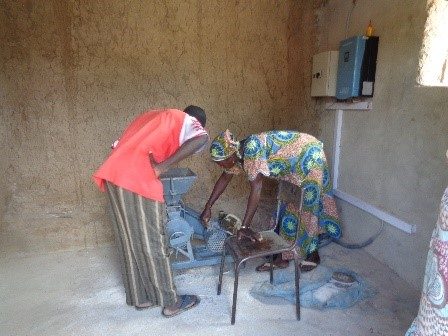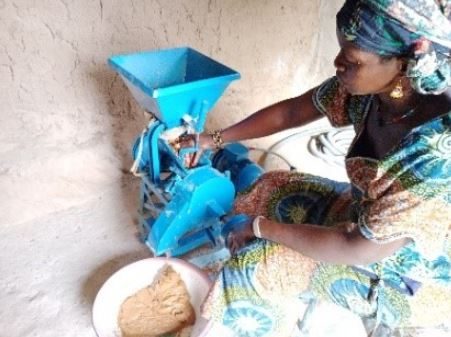Supporting women to take the lead in renewable energy
7 July 2023In Senegal, Mali and Niger women are tackling stereotypes and becoming successful energy entrepreneurs!
Plan International is supporting over 21,000 women to seize opportunities in the new and growing renewable energy sector and utilise the potential of solar power to set up a whole range of new small businesses. These women are taking on leadership roles – and saying loud and clear: ‘I Can Do That’!
Across West Africa women are less likely than men to be working outside the home, and when they are working – the quality of employment – or profitability of their businesses – often lags behind men. Plan International’s “Economic and Social Development of Women through Renewable Energies in the Sahel” project (DESFERS) tackles high levels of social, economic and cultural inequality that impede women’s participation in economic activities.
Opportunities for women in solar energy
Traditional social norms along with low access to education and technical training often mean that women get ‘trapped’ in traditional small business activities with low earnings. The sustainable energy sector – and particularly solar photovoltaic energy -represents a great new opportunity for women. As a ‘new’ sector it challenges the stereotype of what women ‘can’ and ‘cannot’ do – and women in the Sahel are proving up to that challenge.
The project started with listening to women explain their needs and identifying locations with the greatest potential for social and economic impact. Initially the focus was on building individual skills like functional literacy (reading, writing, calculation) and introducing ideas about entrepreneurship and renewable energies, all delivered when possible in the local language. After that the project provided more technical training on solar energy and women started to think about the kinds of businesses they wanted to start that could use solar power. The project also worked with a number of ‘male champions’ who work with their male peers in the community to change opinions and behaviours and tackle entrenched stereotypes.
Women as agents of change
But DESFERS is much more than a technology fix – the project is ensuring that women are visible as leaders and agents of change in their own communities– robustly challenging and transforming traditional gender roles. Women are visibly responsible for installation and maintenance of much of the new technology and are enthusiastically seizing the small business opportunities that renewable energy offers. These trailblazers have become role models for other young women and girls. Some of them like Konimba in Mali are also successfully taking up the role of Energy Service Agents – setting up a viable business as energy entrepreneurs in their communities
Seeing is believing – and the women who are on the front line of this exciting project are one by one clearly demonstrating their enthusiasm and effectiveness in optimising new technology – a strong example of ‘I Can Do That!.’

“My name is Konimba and I am an Energy Service Agent and Promotor of Income Generating Activities. I am 39 years old, married and the mother of 3 girls and 2 boys). Before the project, I was carrying out my small business in the village, but often I was not able to get by because I did not have enough business.”

“With the project in my village, I first of all attended literacy training. I became one of the Energy Service Agents (ESA) in my village and I also participated in training on business management and on how to maintain solar equipment. After asking women in my area about their ideas to generate income, I requested a solar mill because in my village there is no mill for grinding cereals; the women have to pound by hand with all the difficulties we know (like household chores, loss of time). With the support of the project, I was able to get a loan from the bank for the purchase of an integrated solar milling kit to grind cereals and I also applied for small solar kits and now I resell and market these solar kits to earn more income.”


